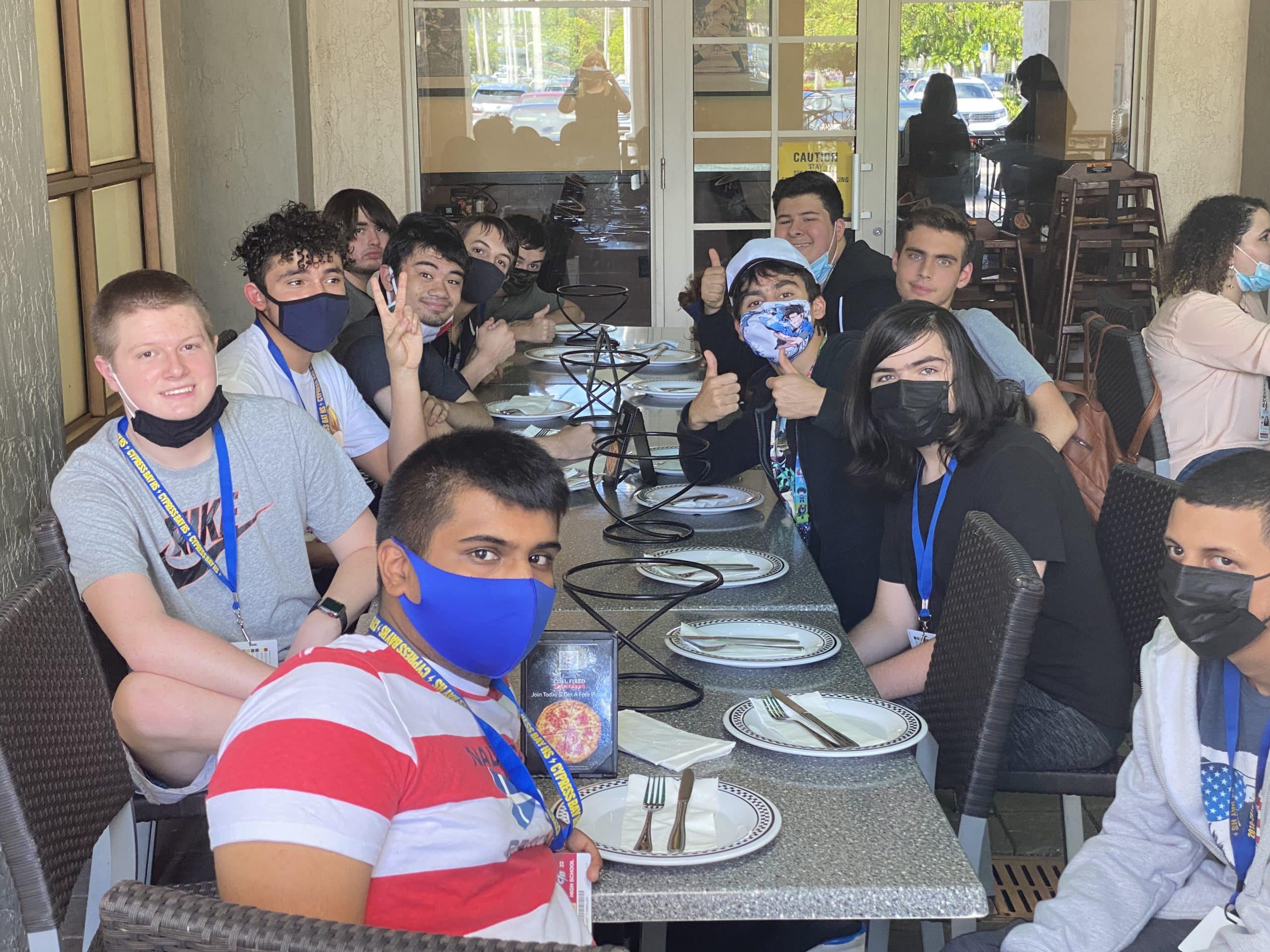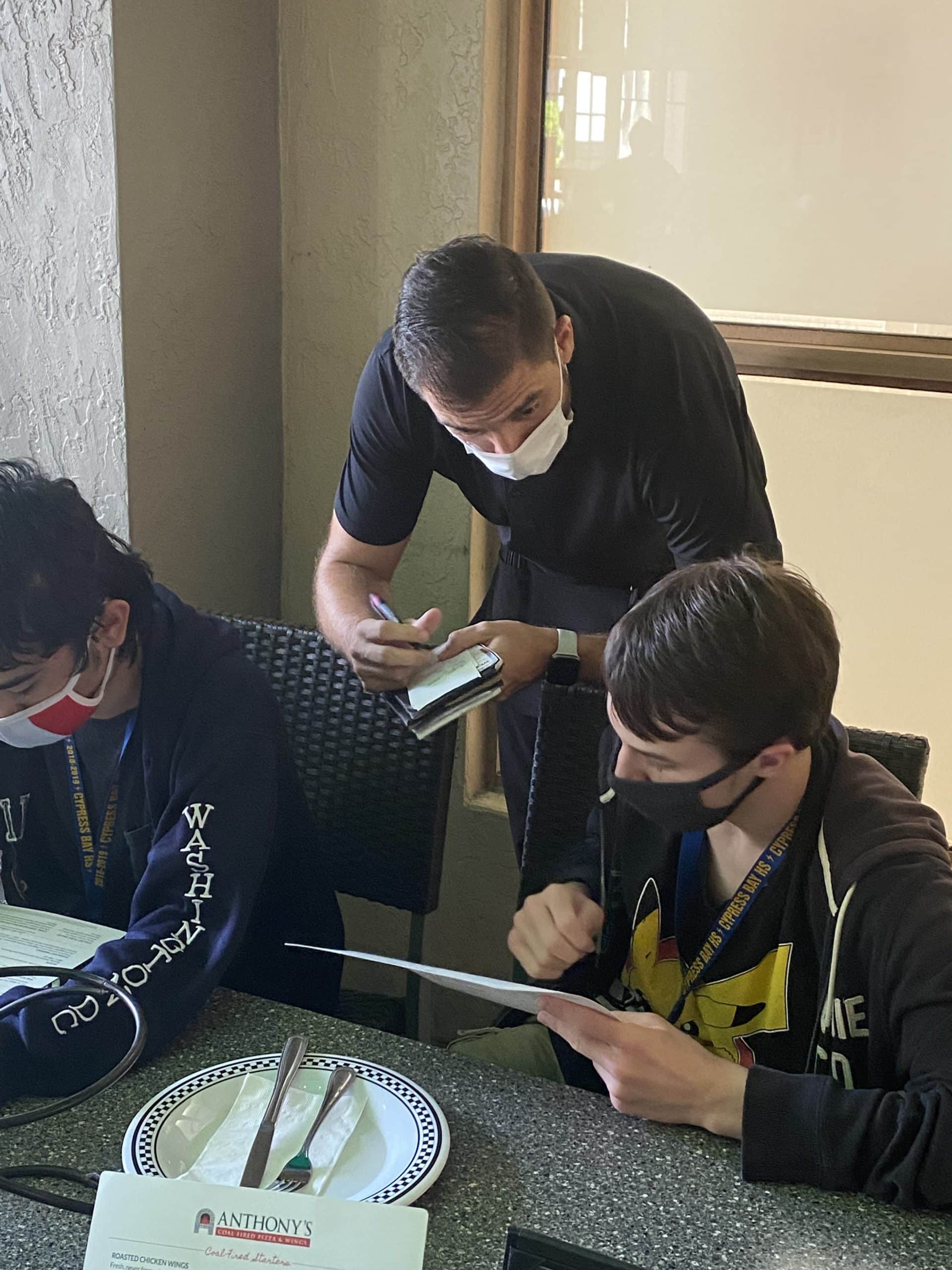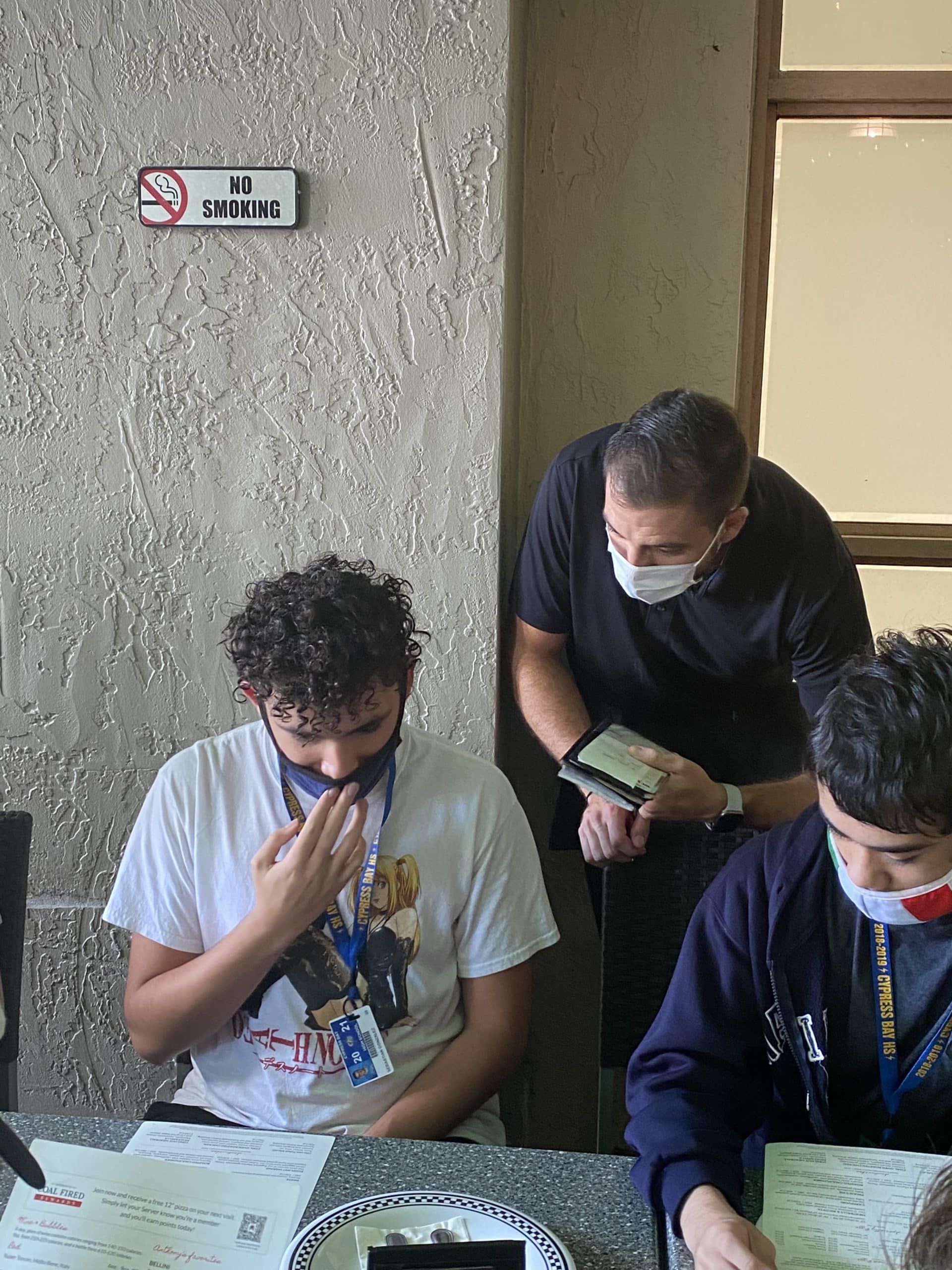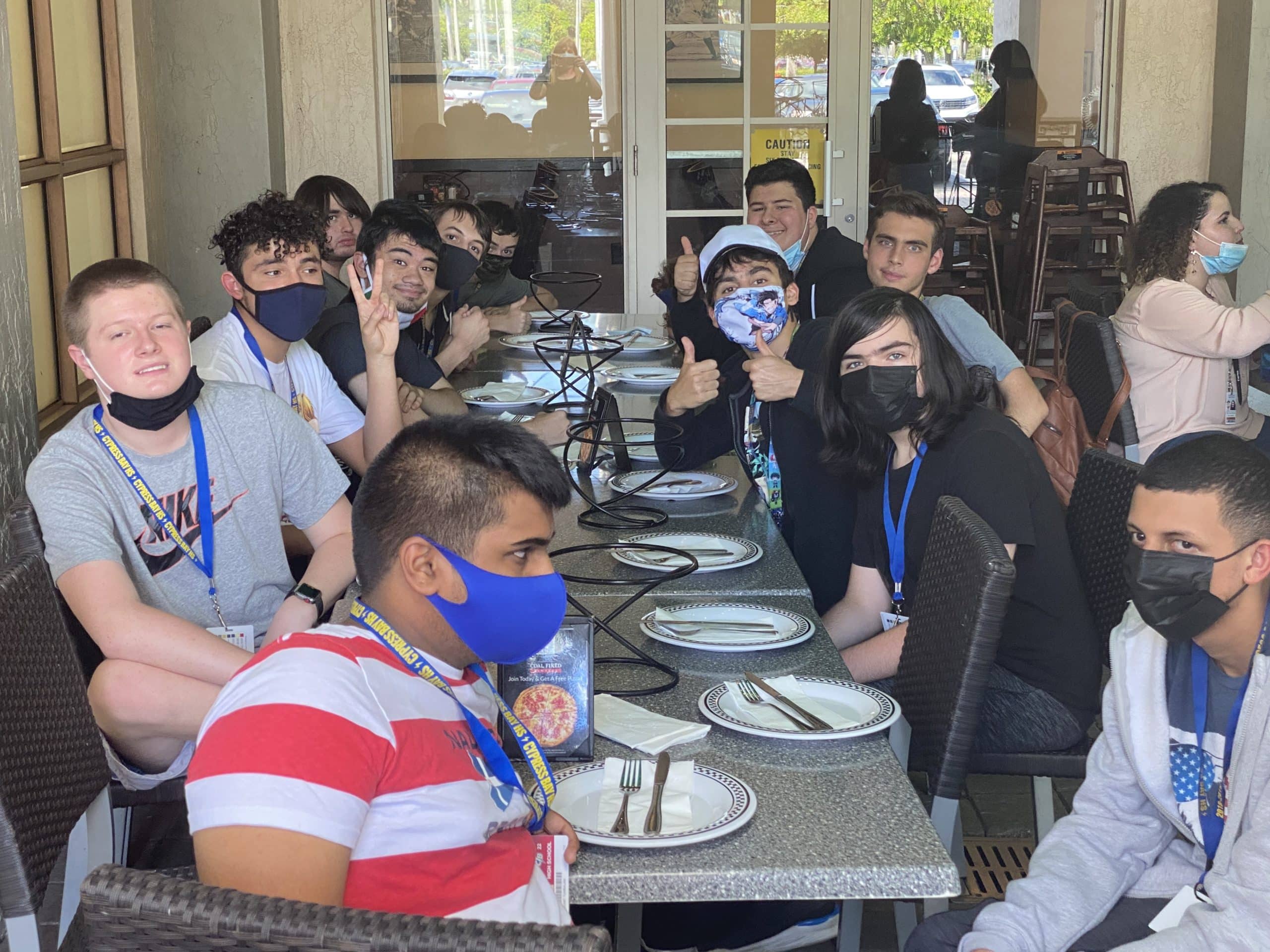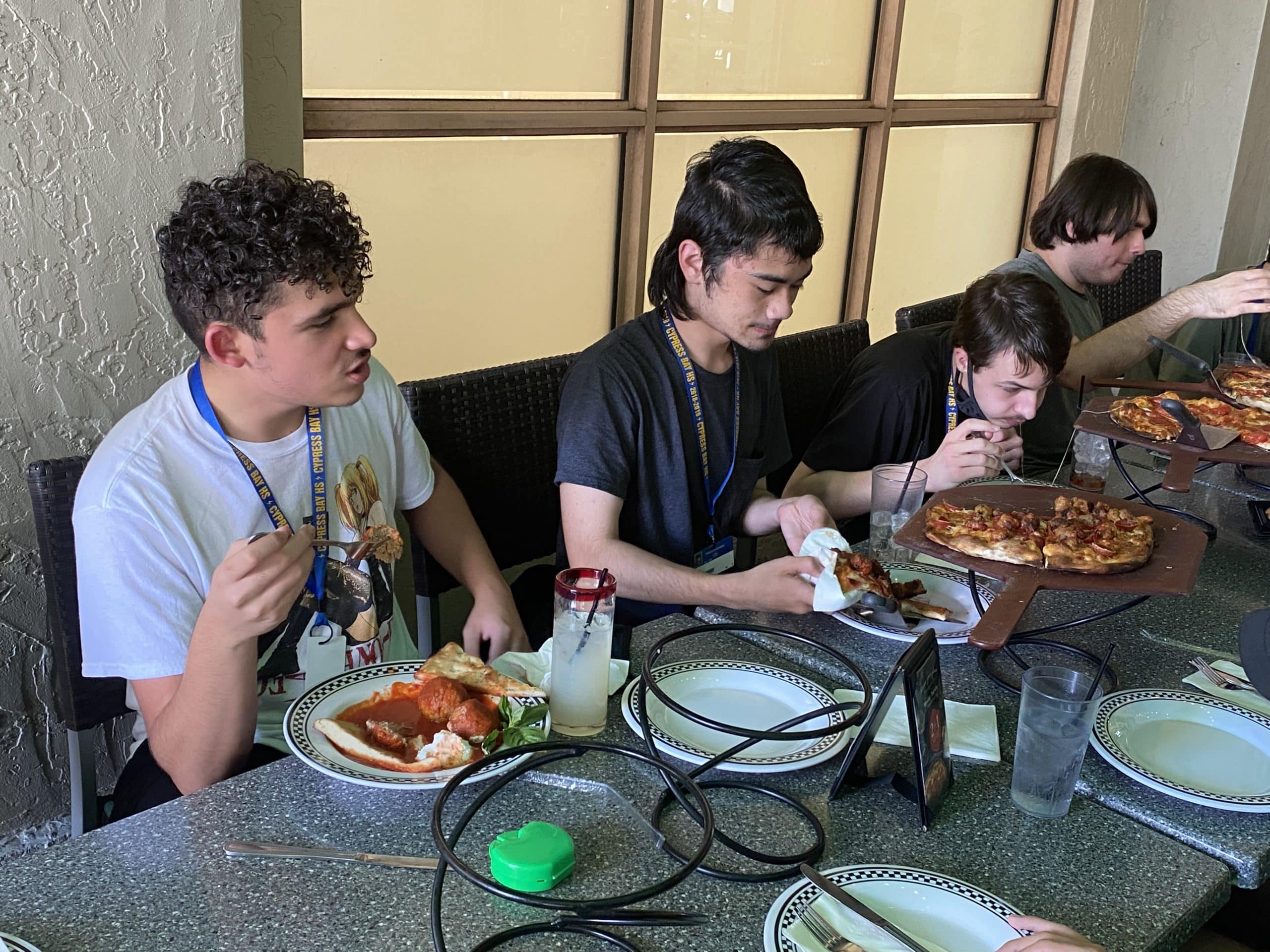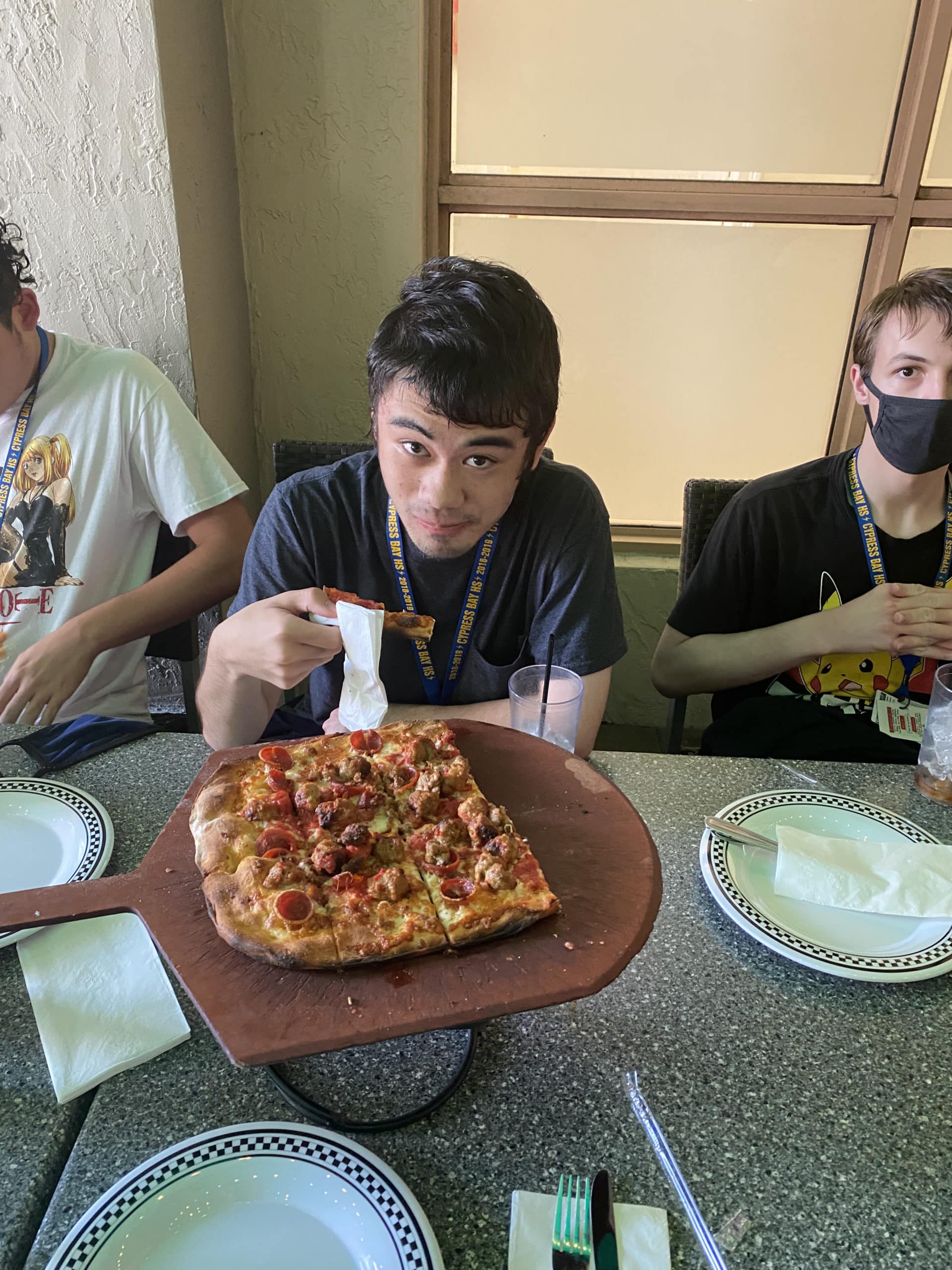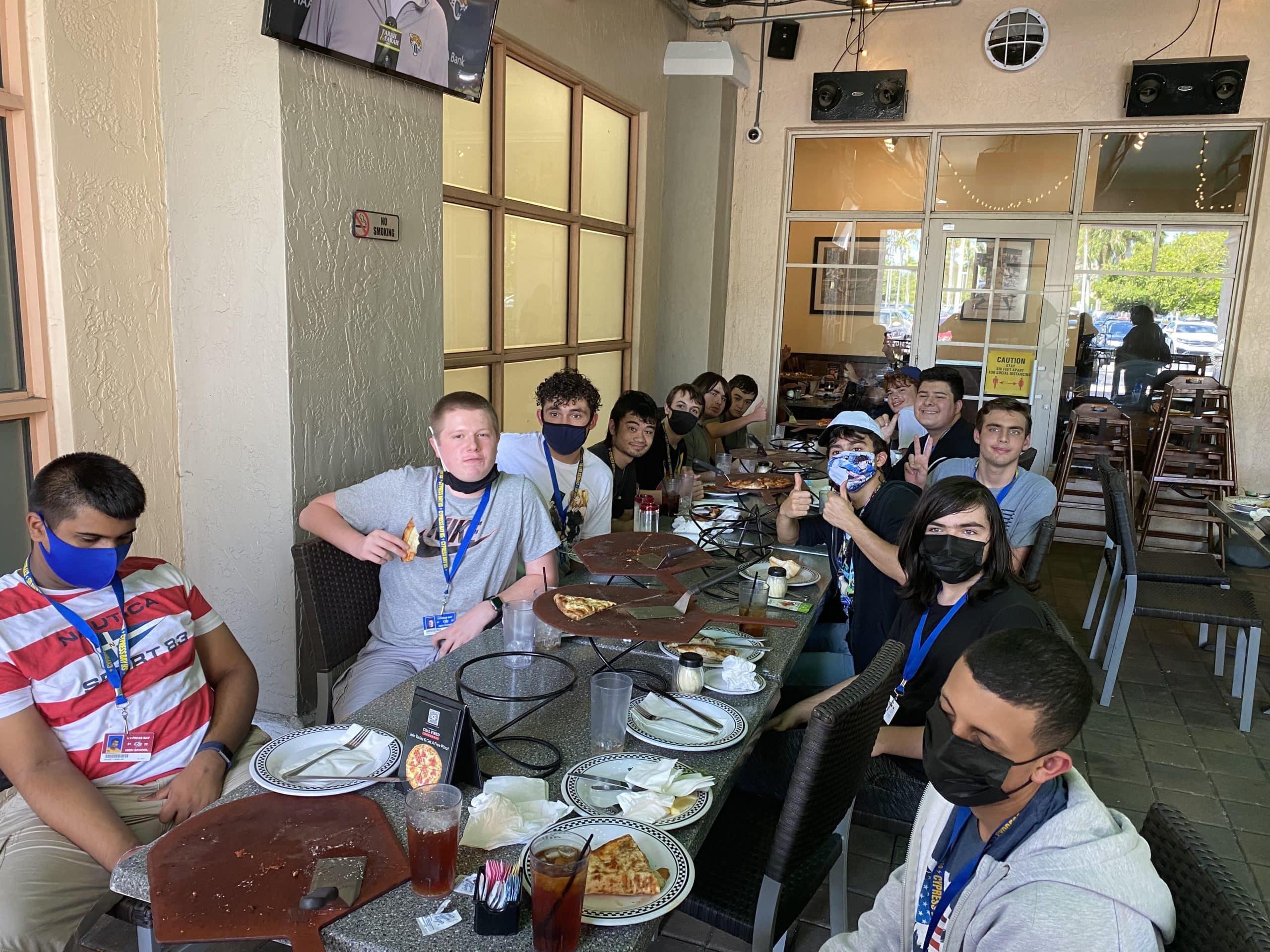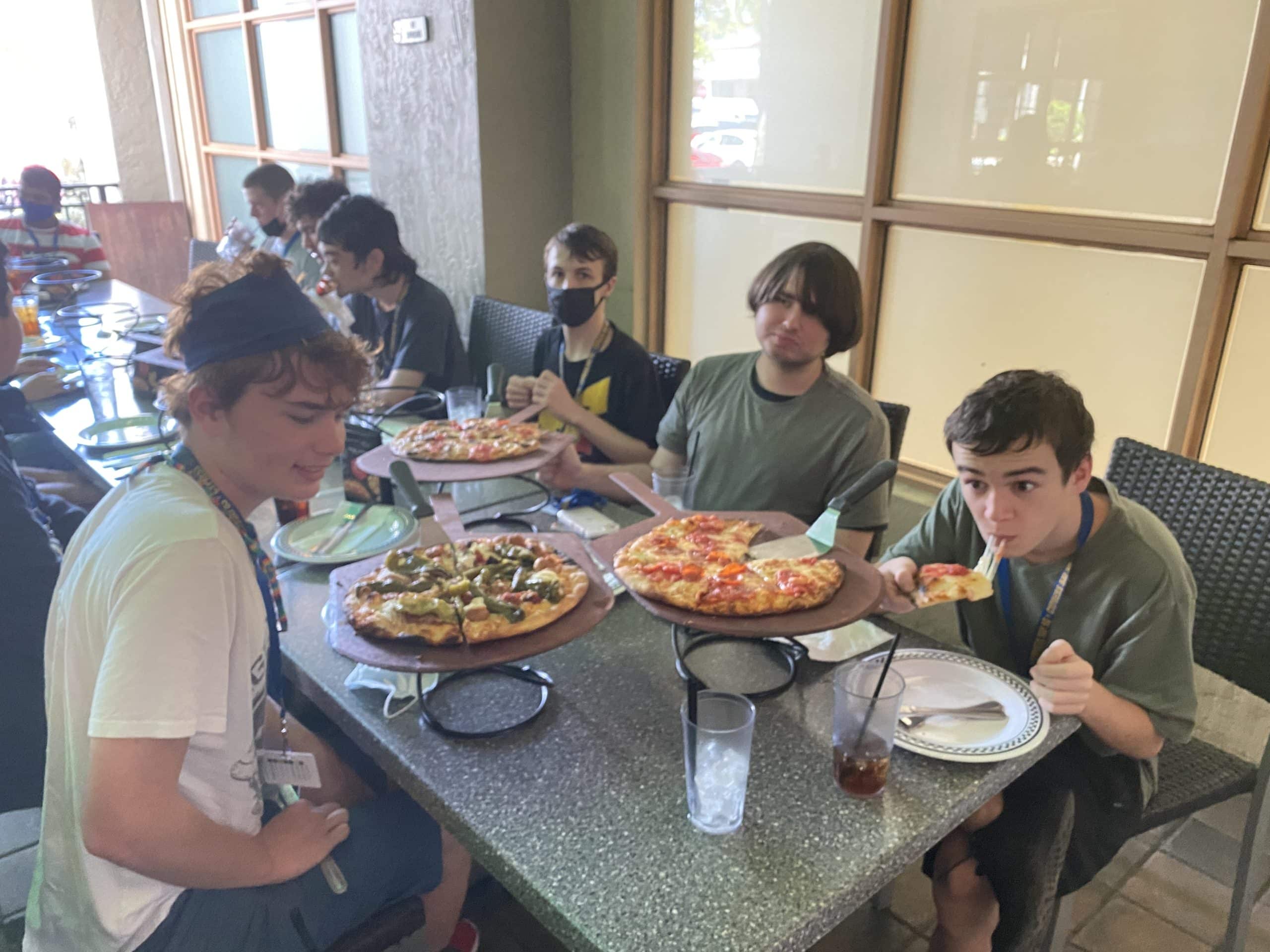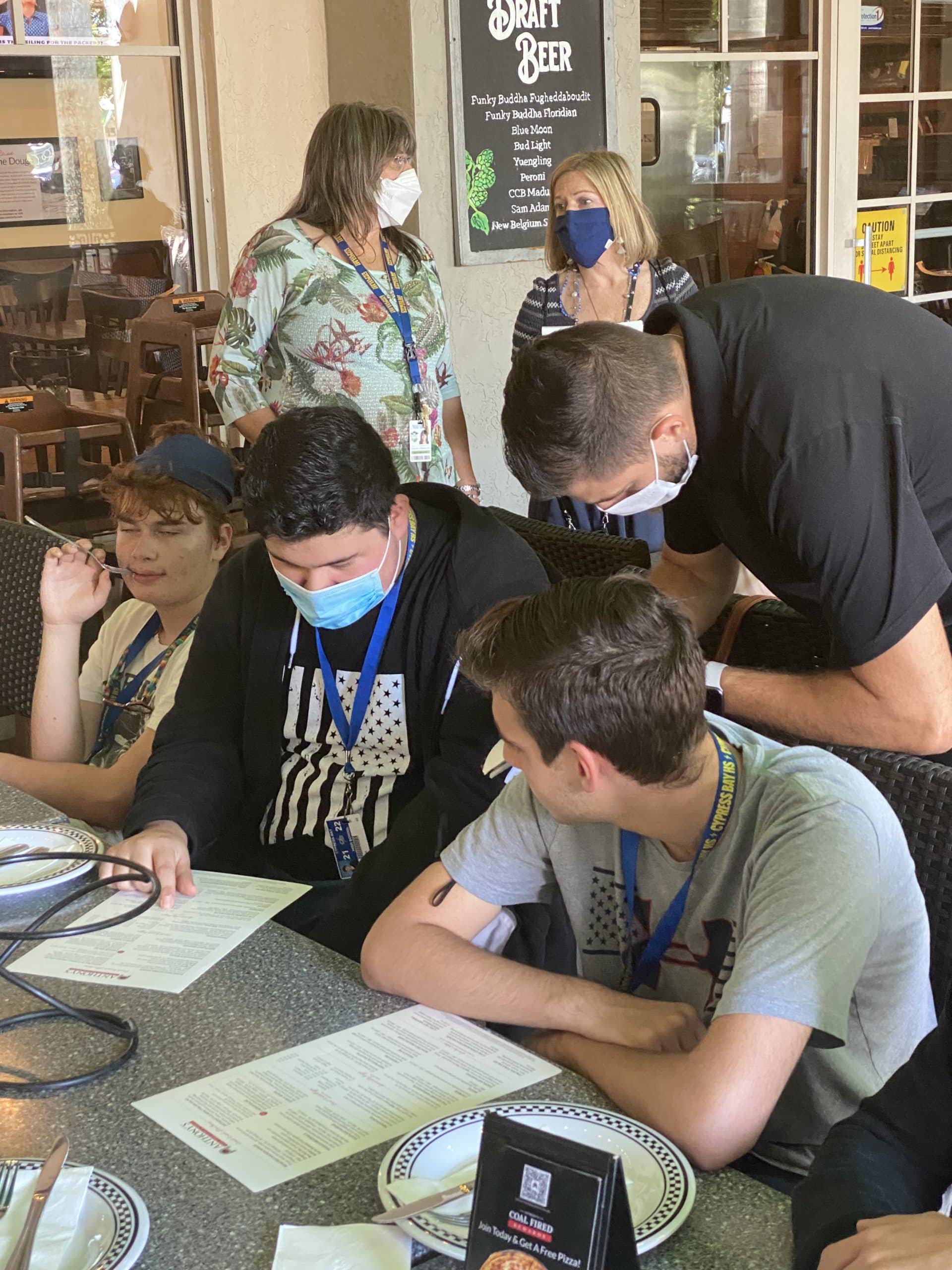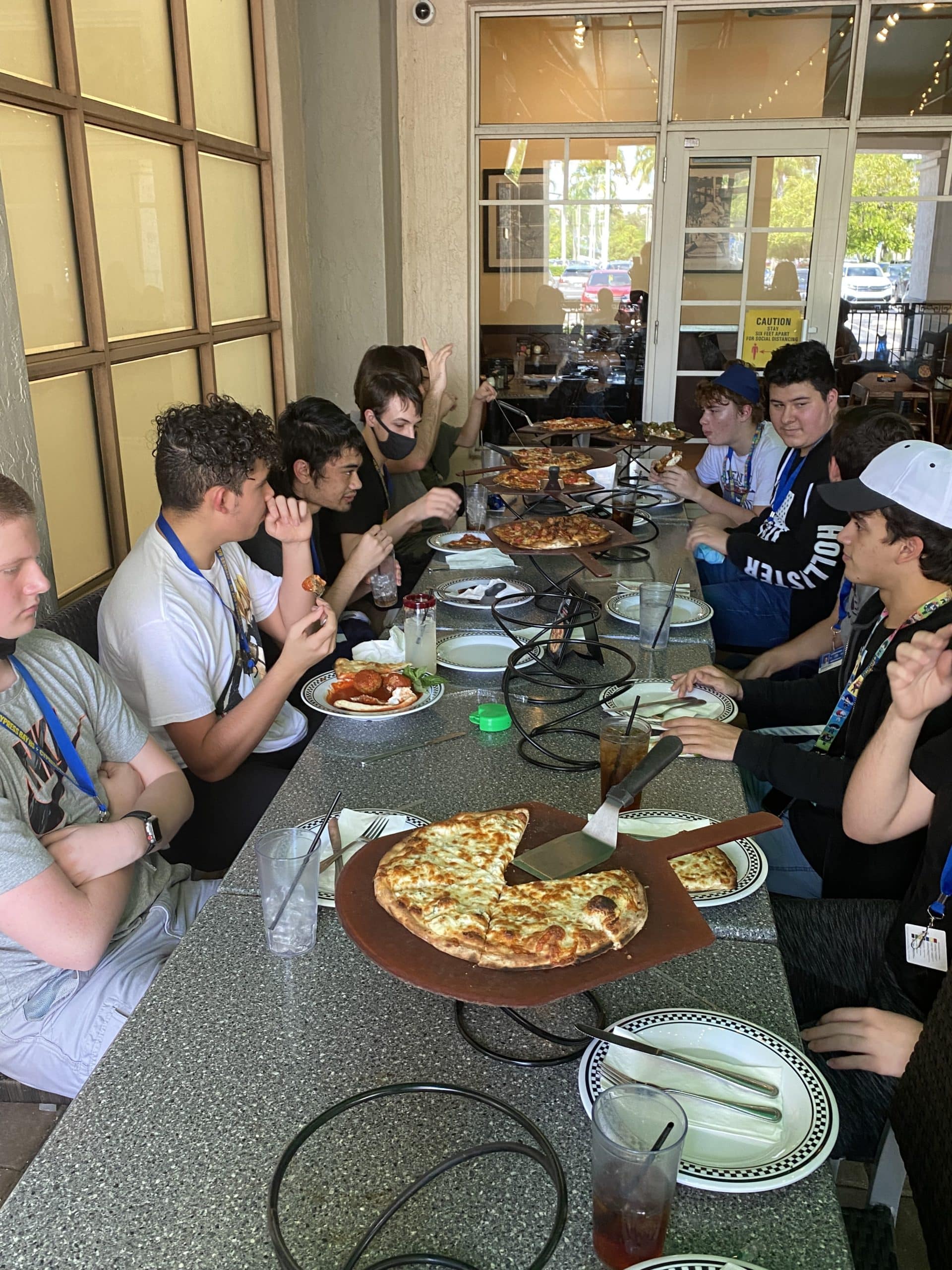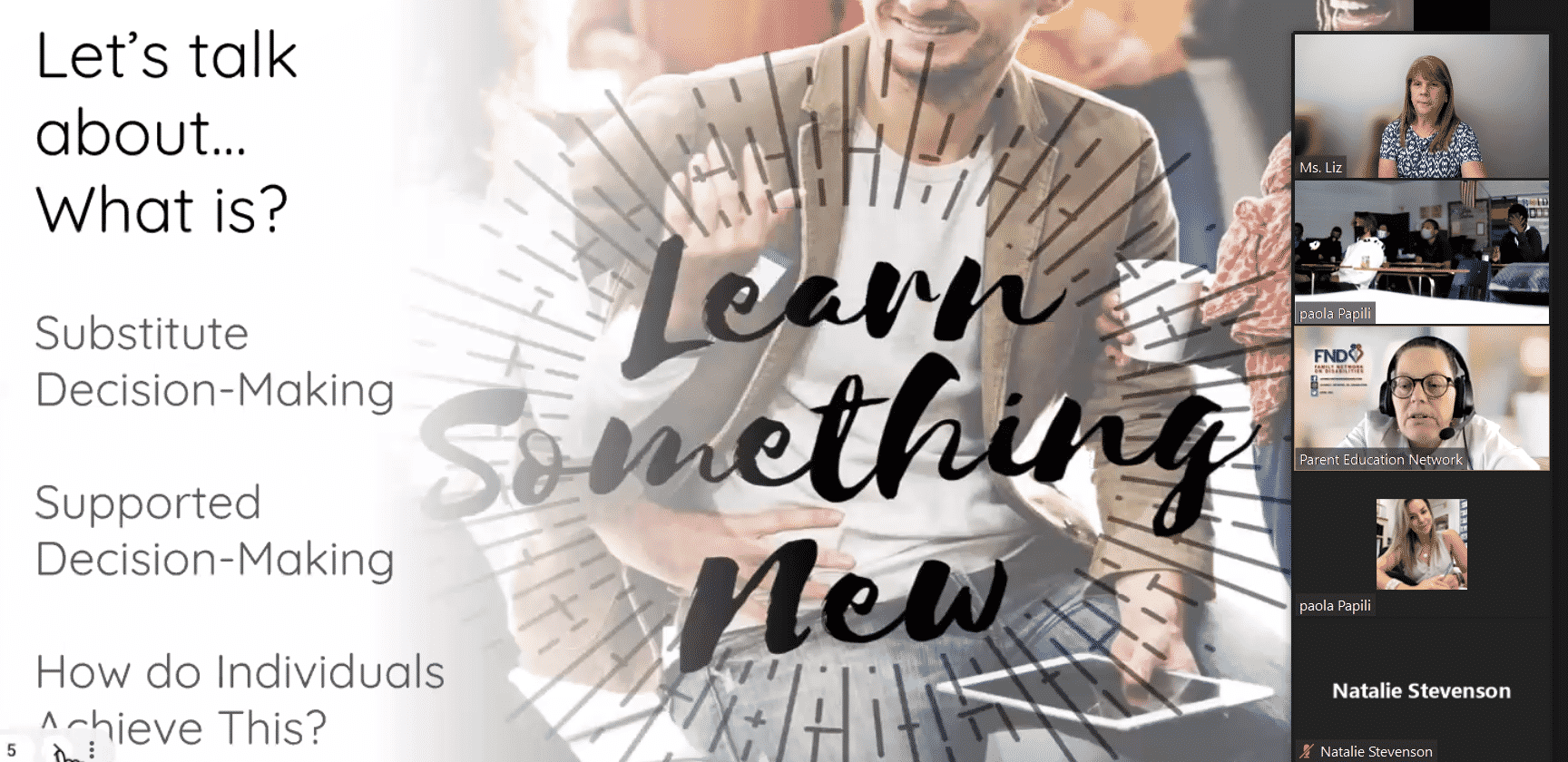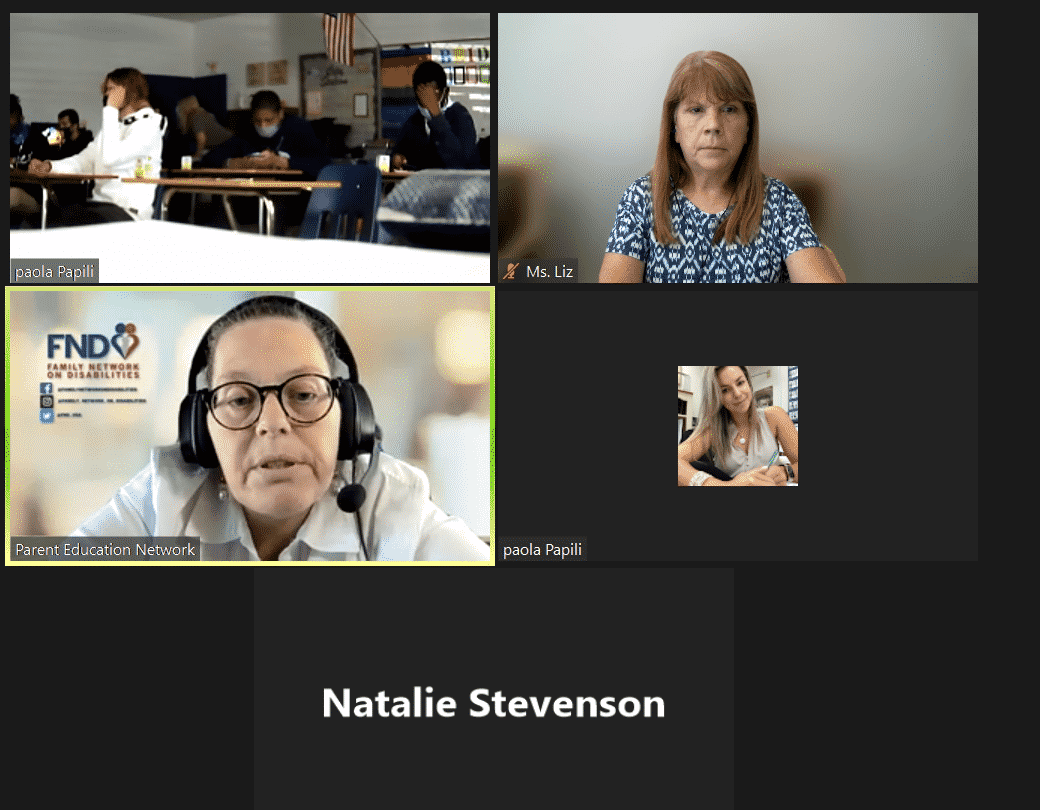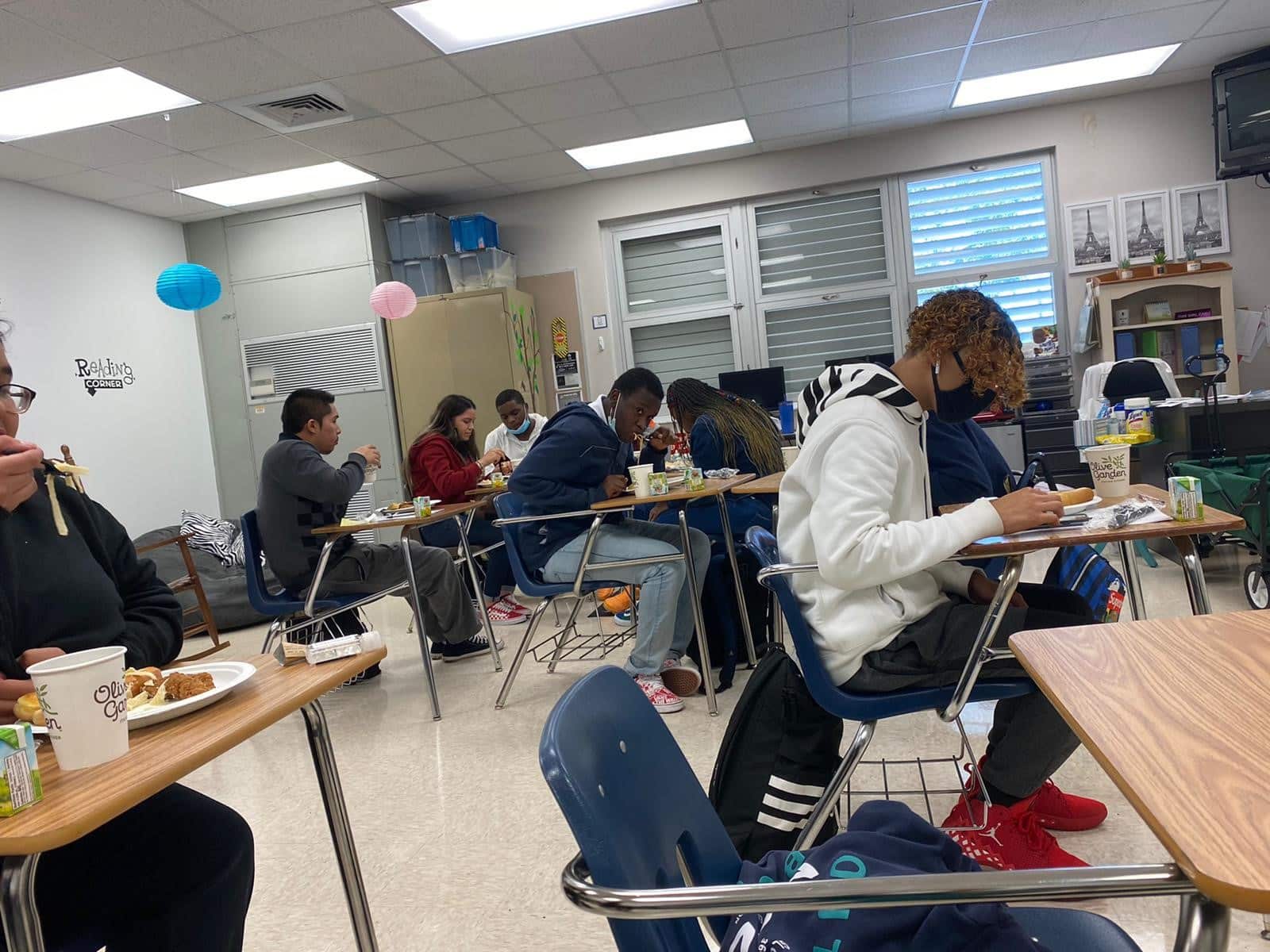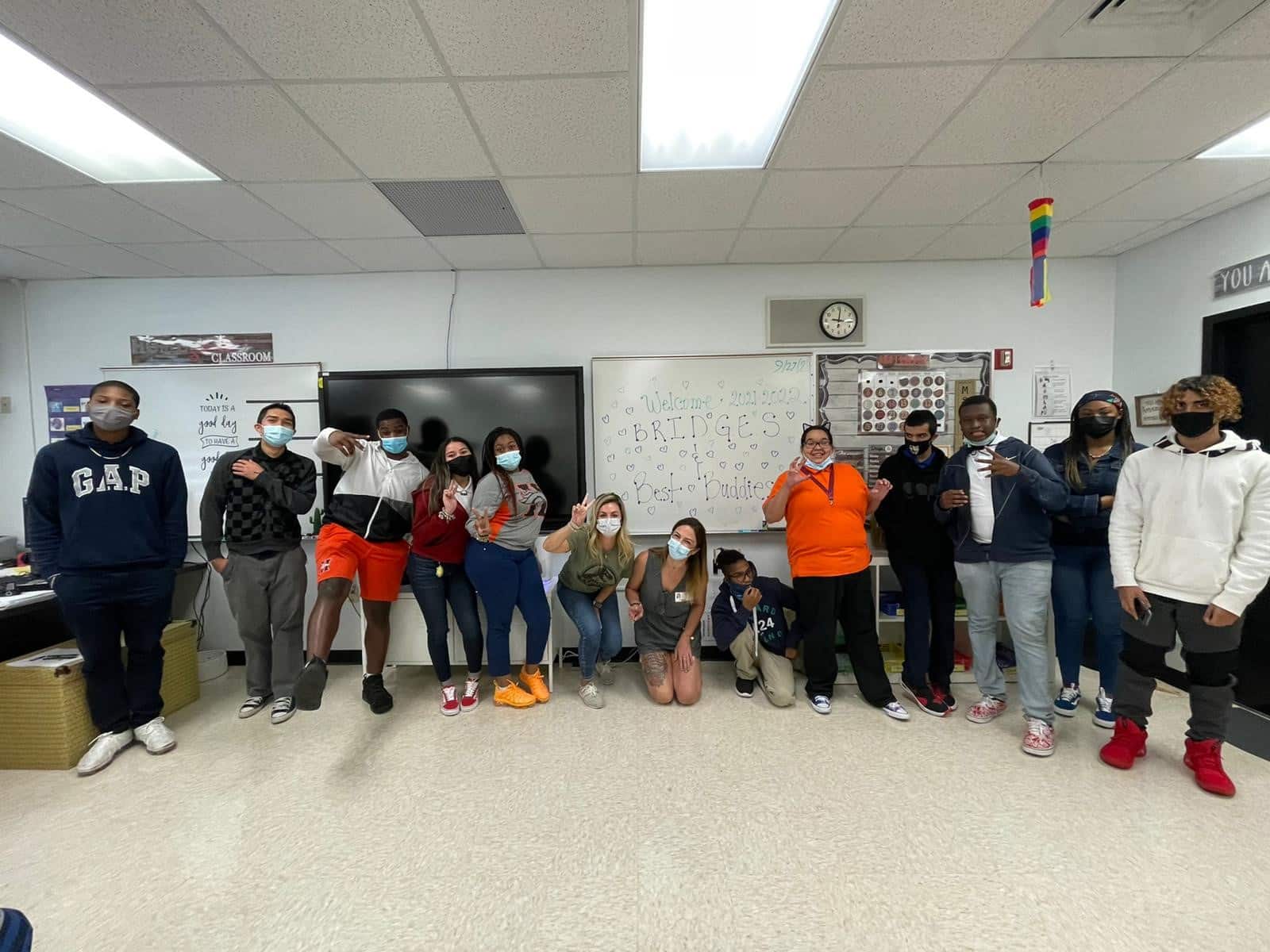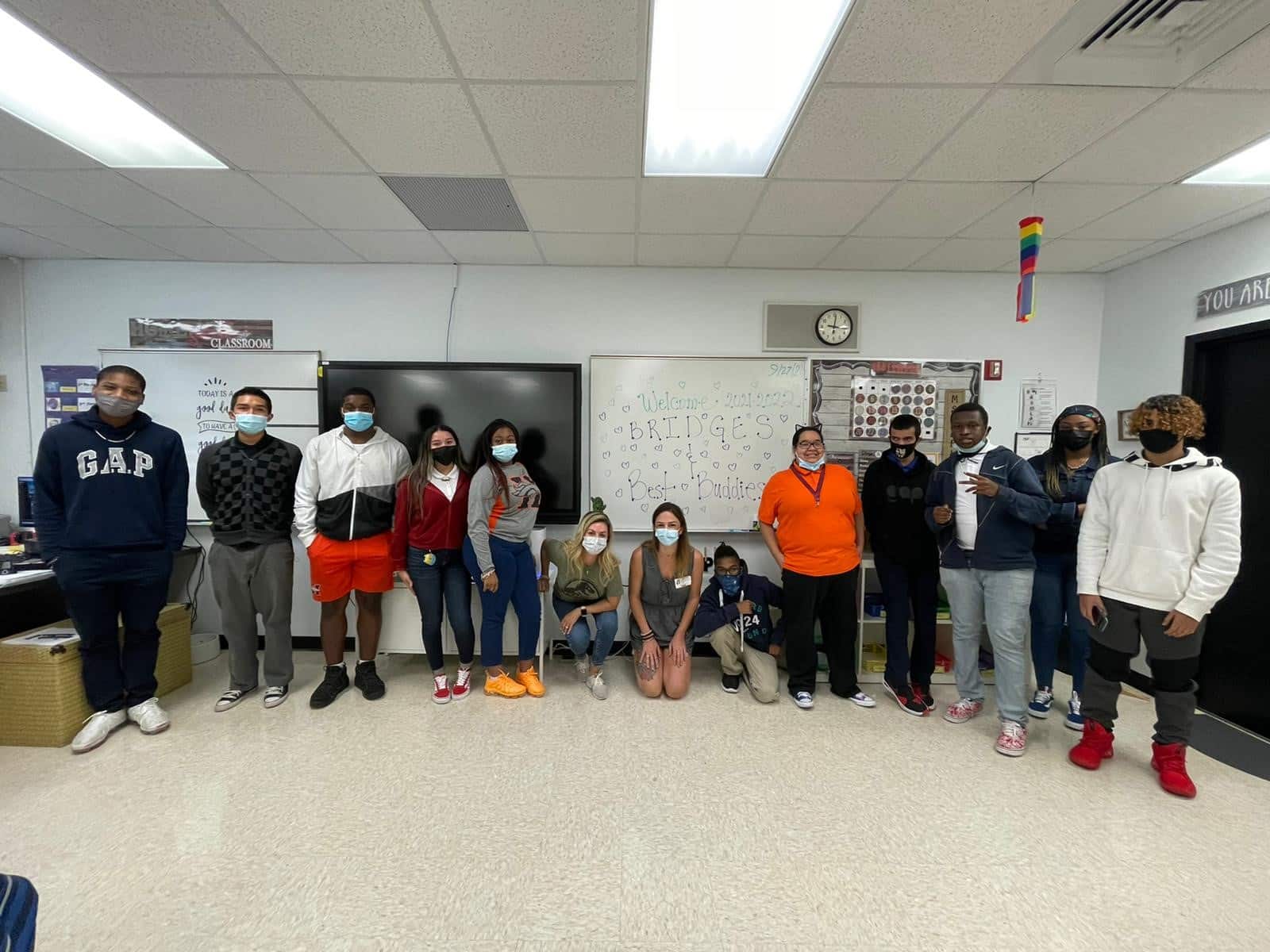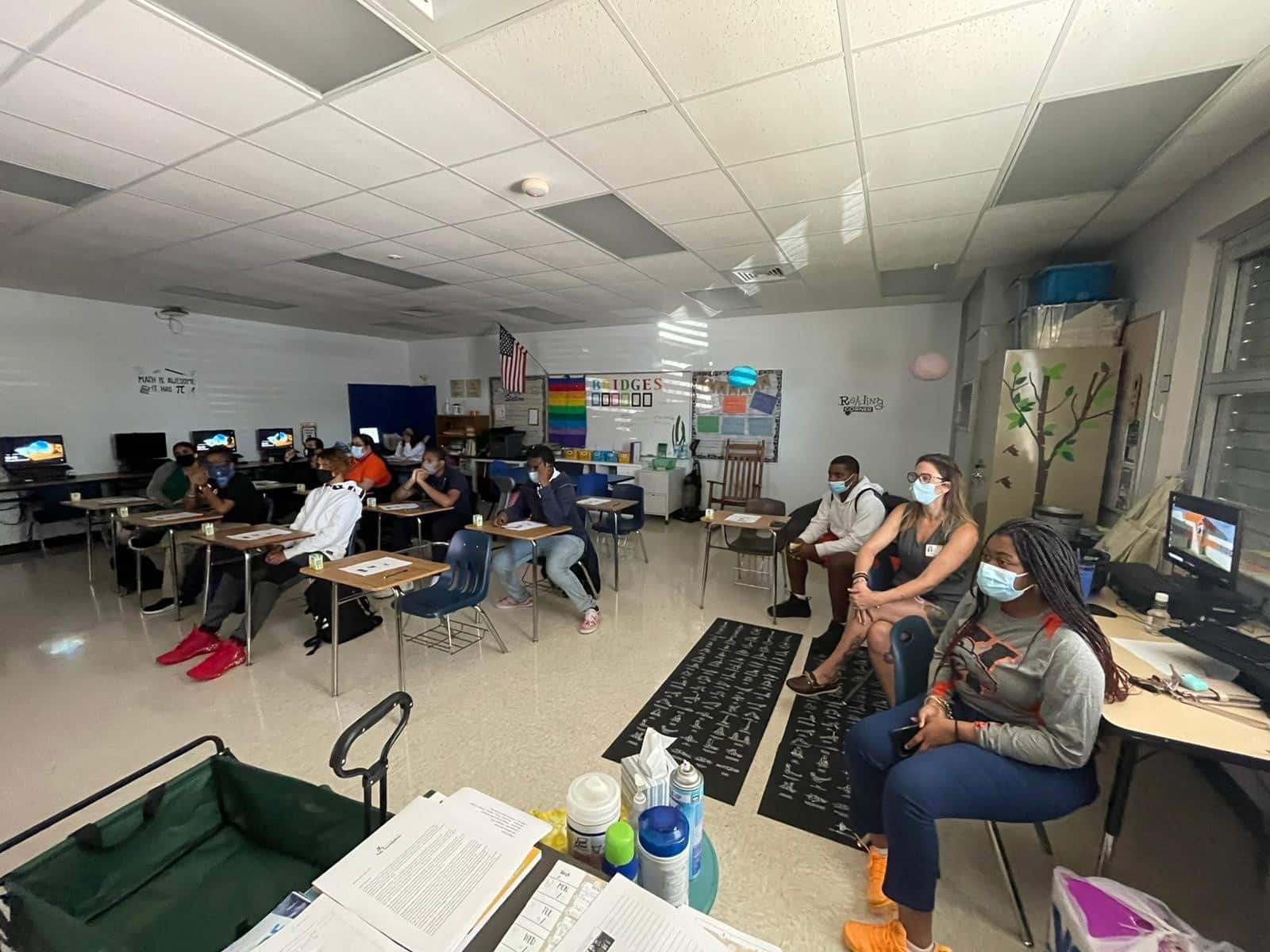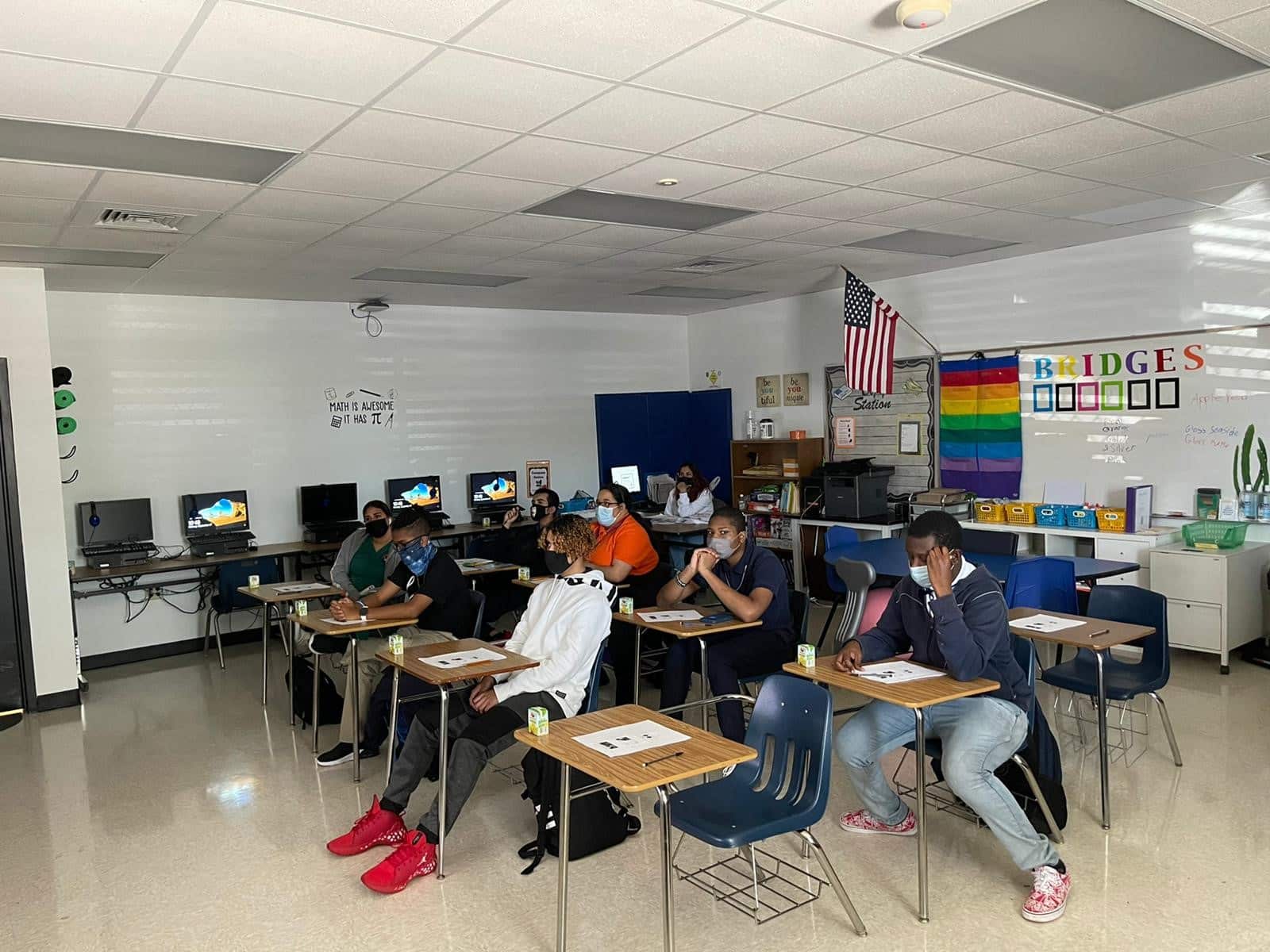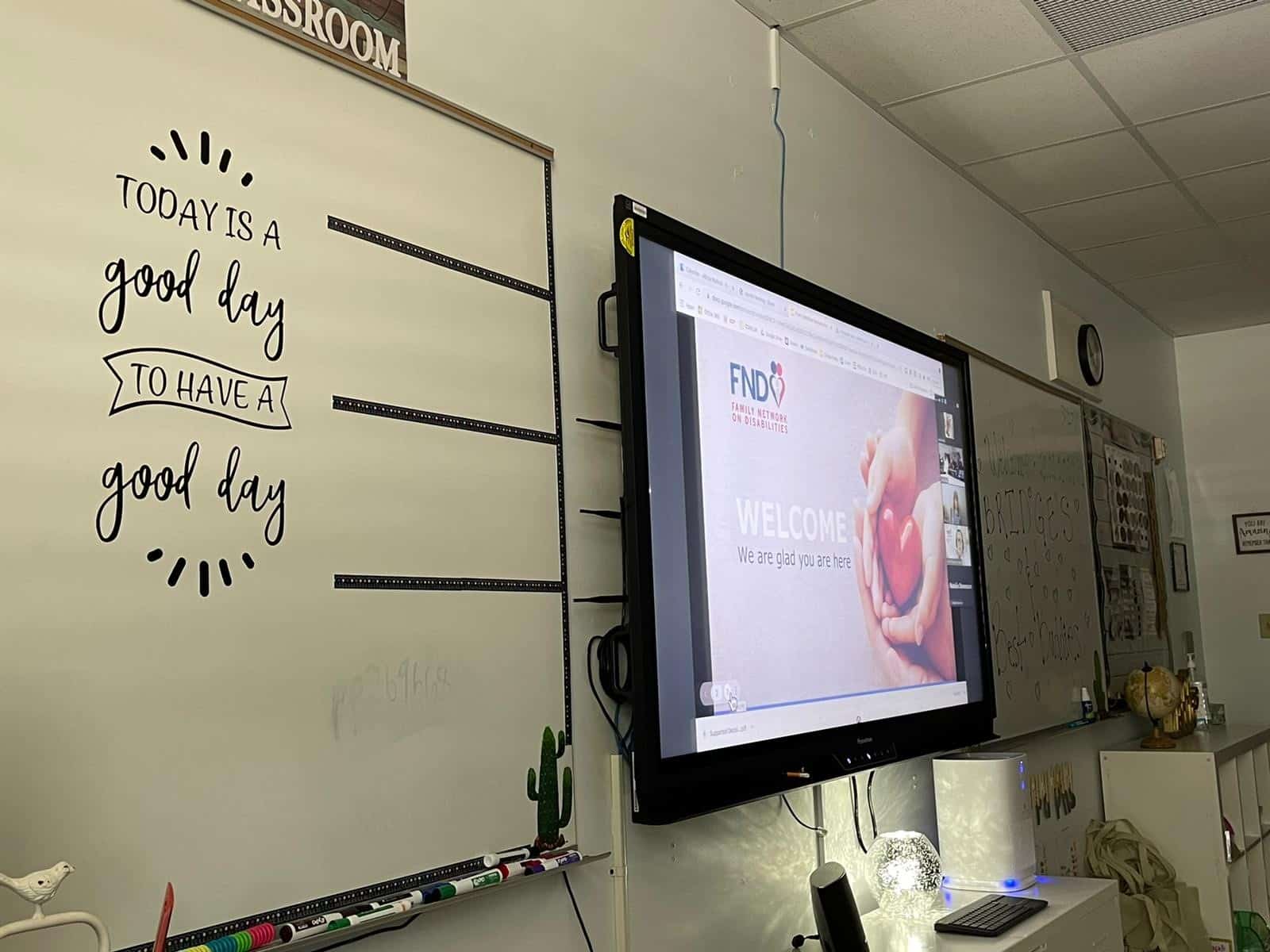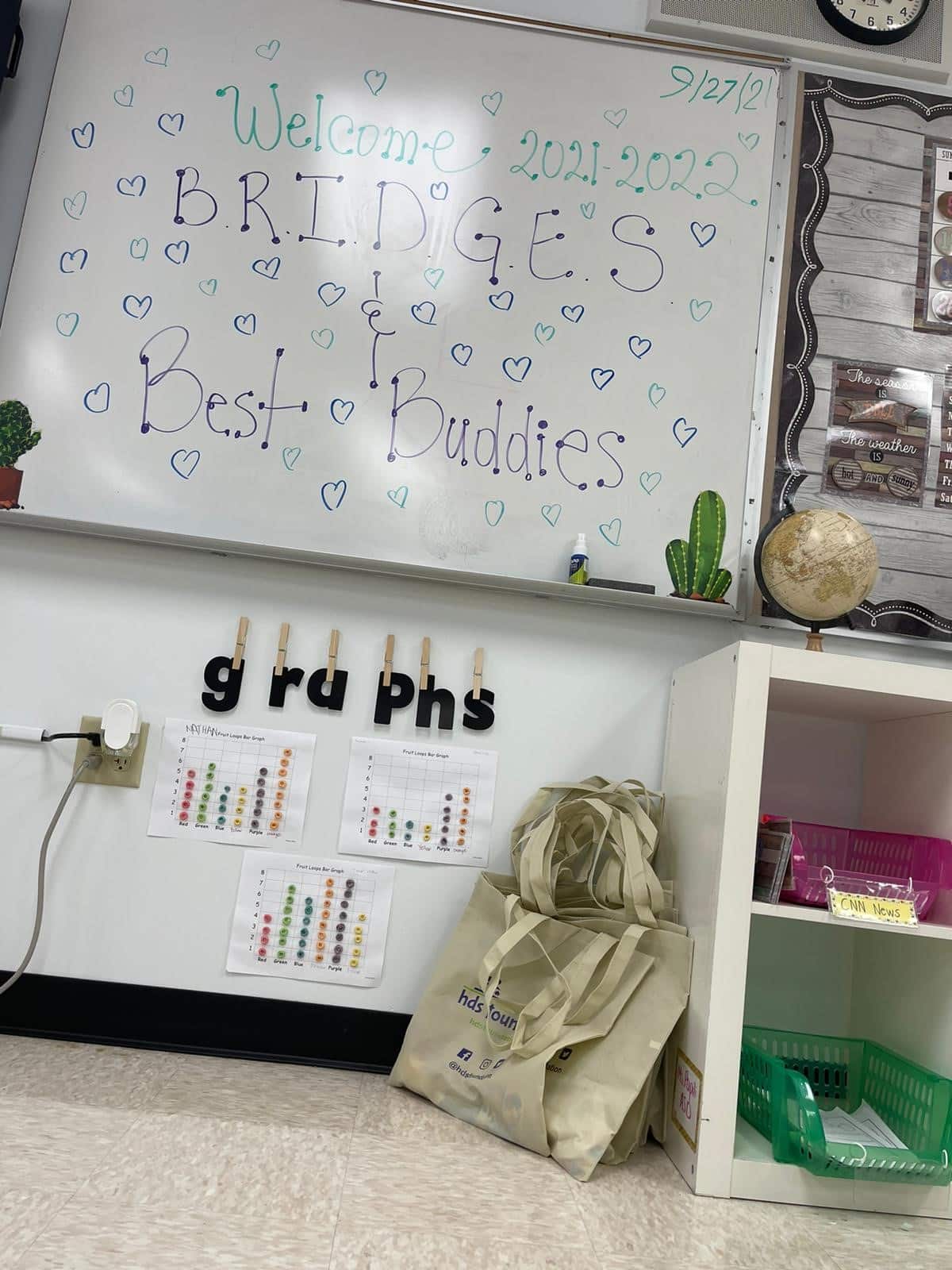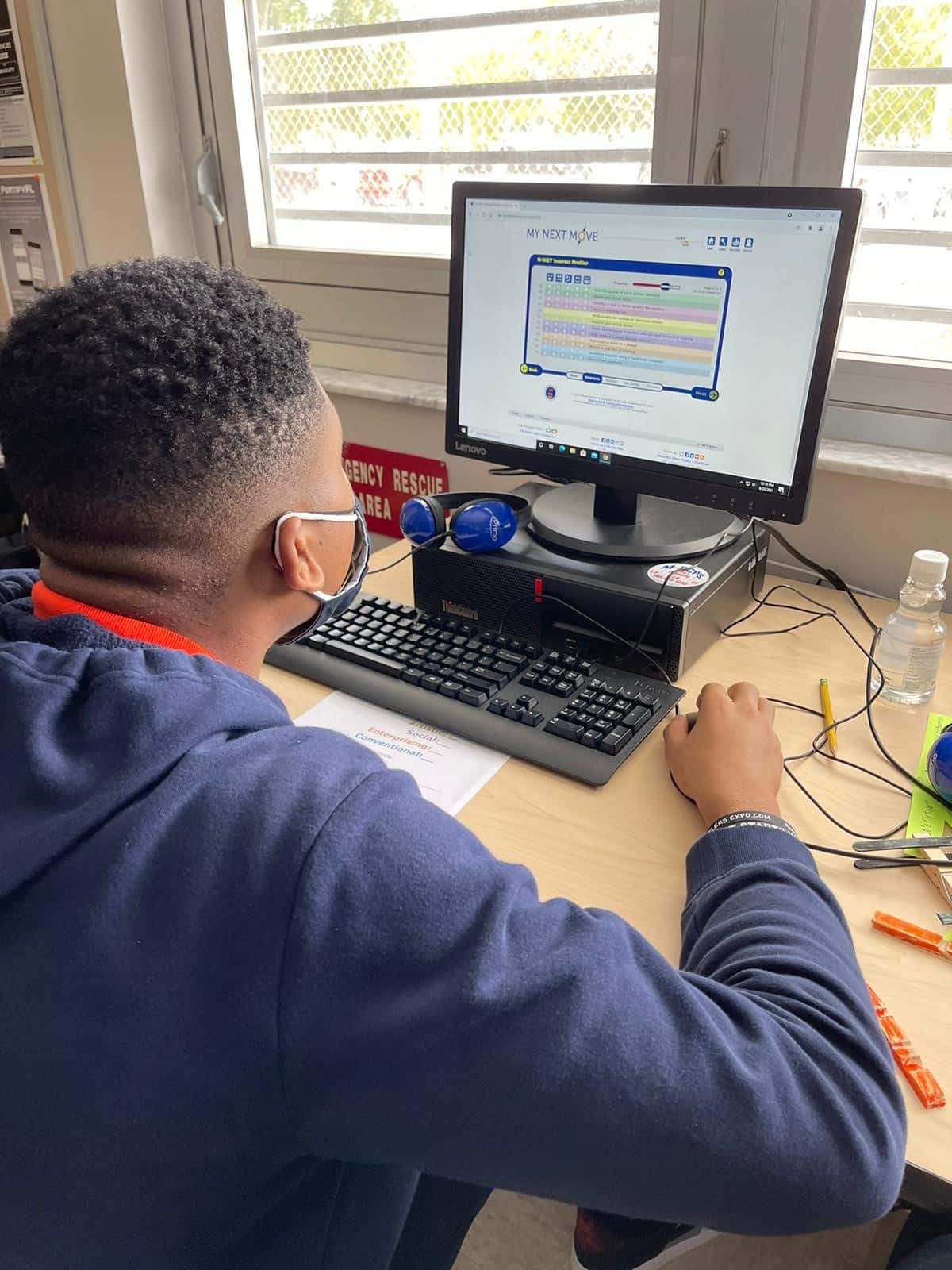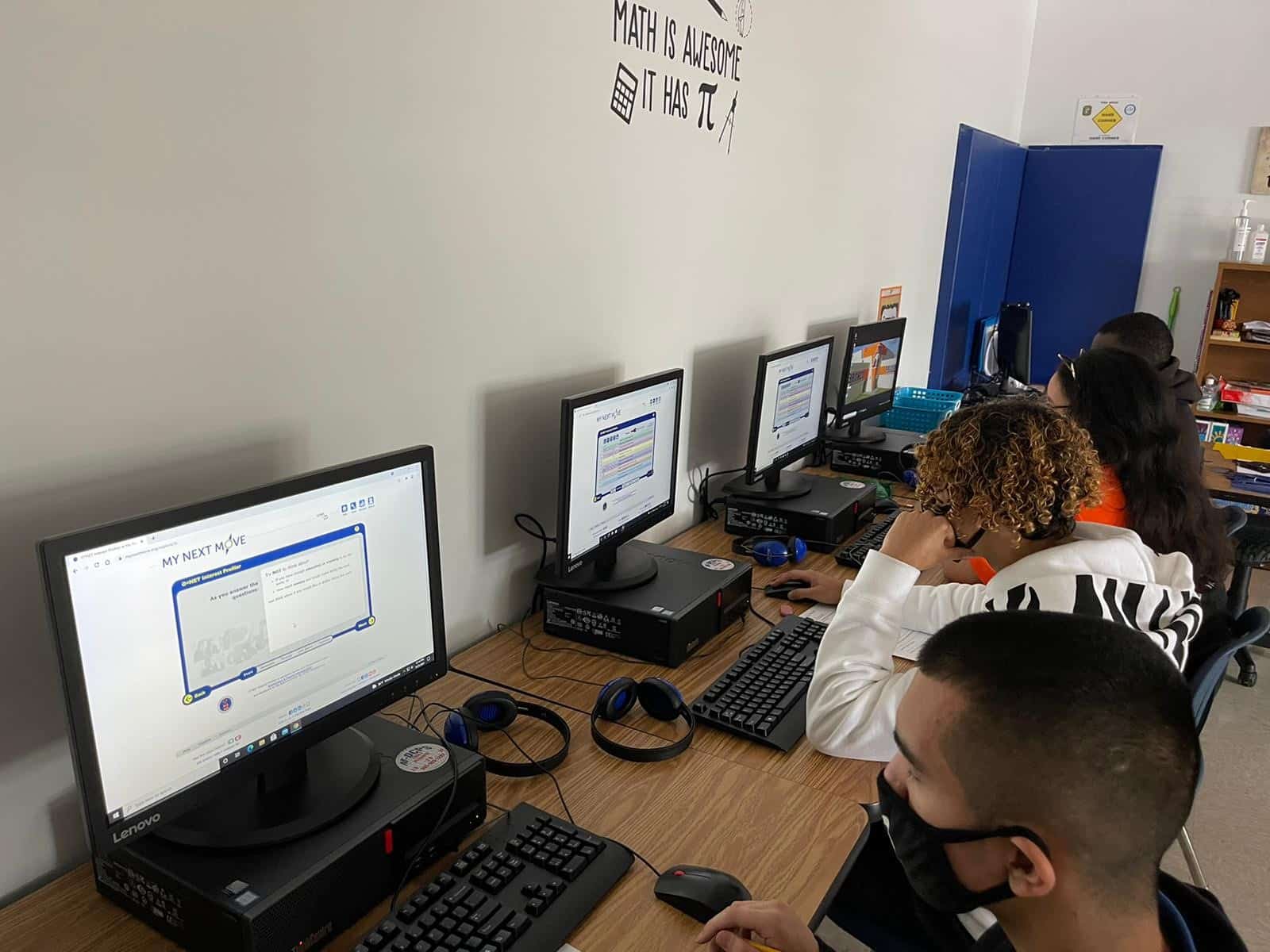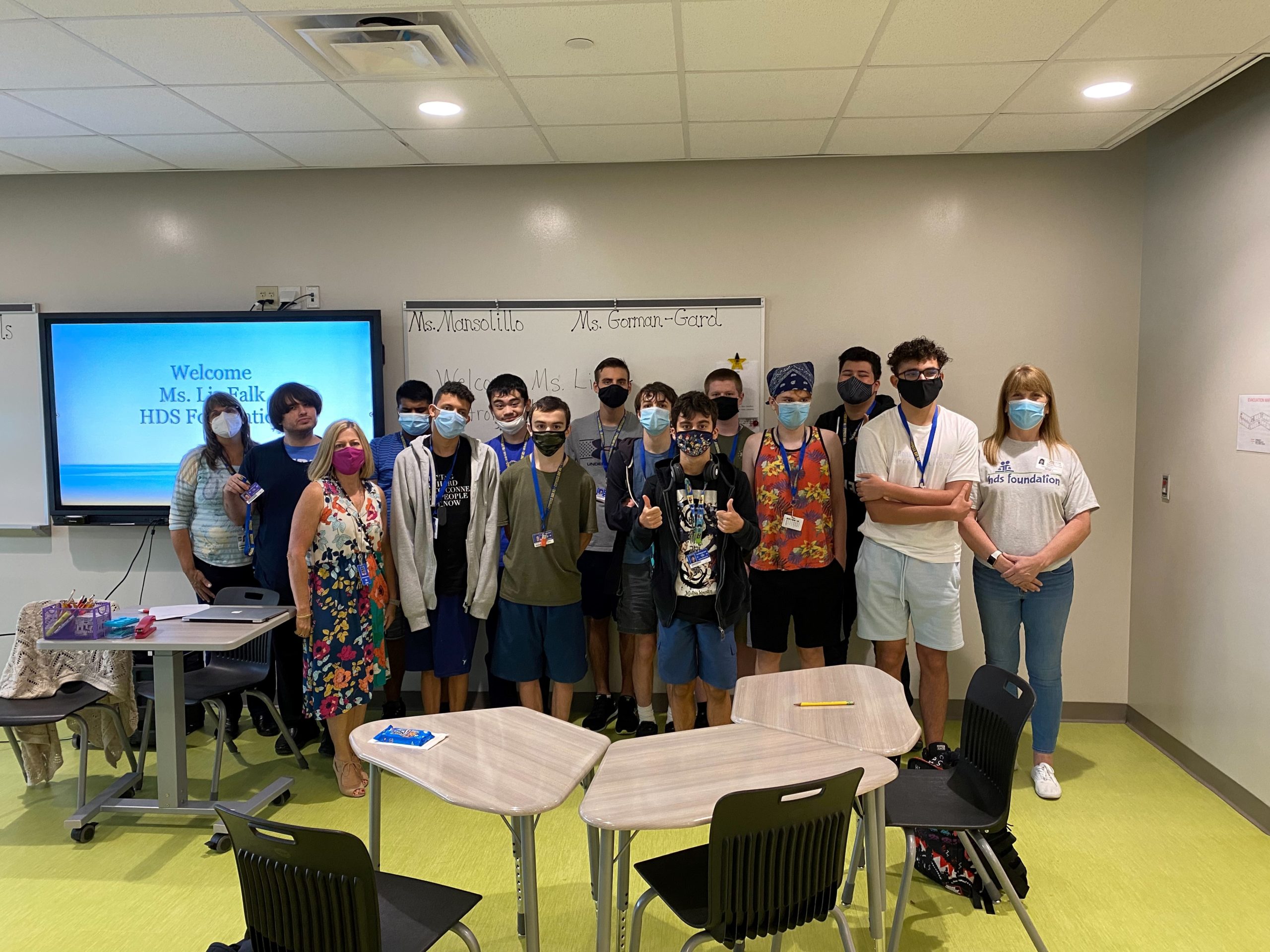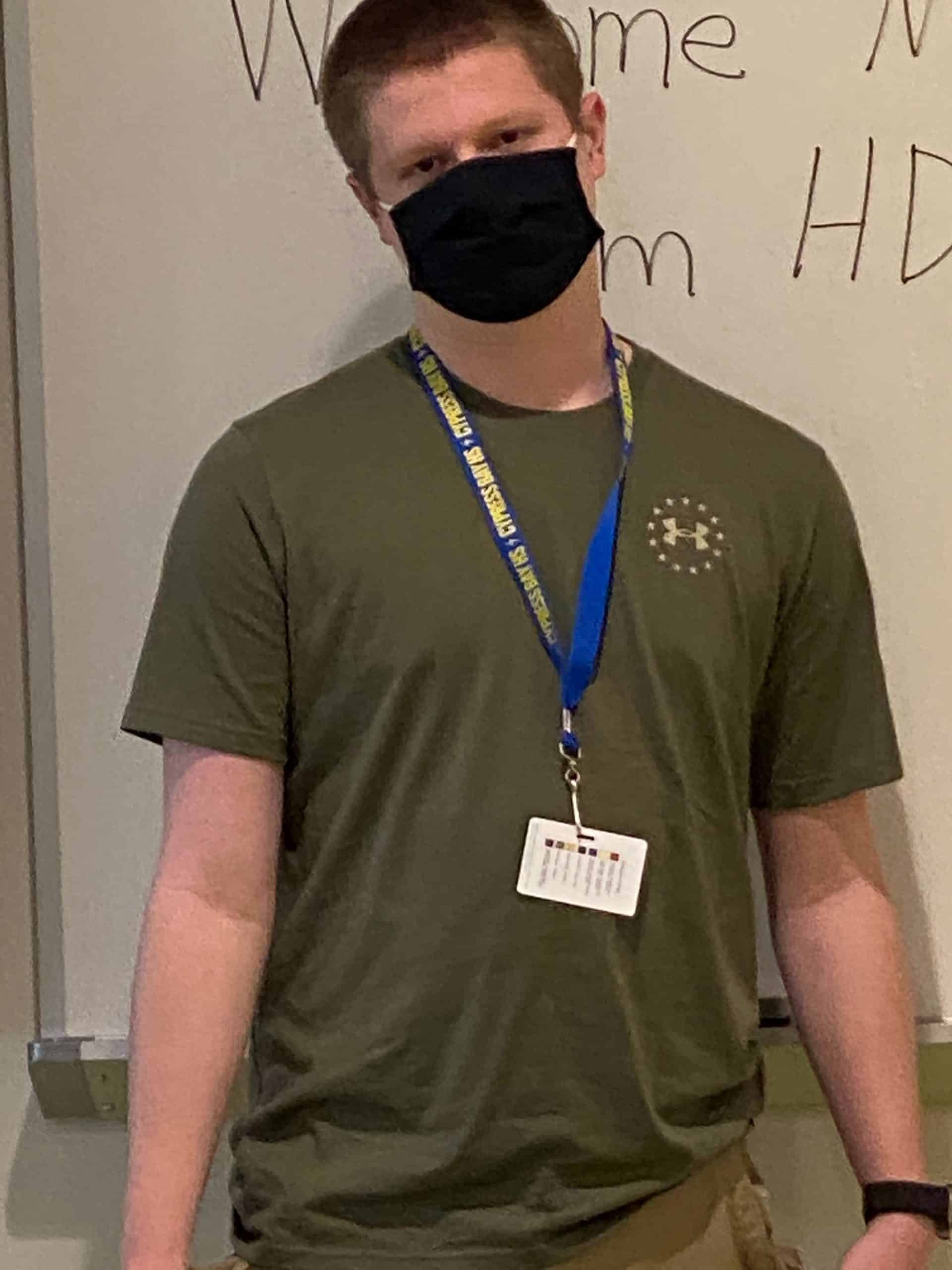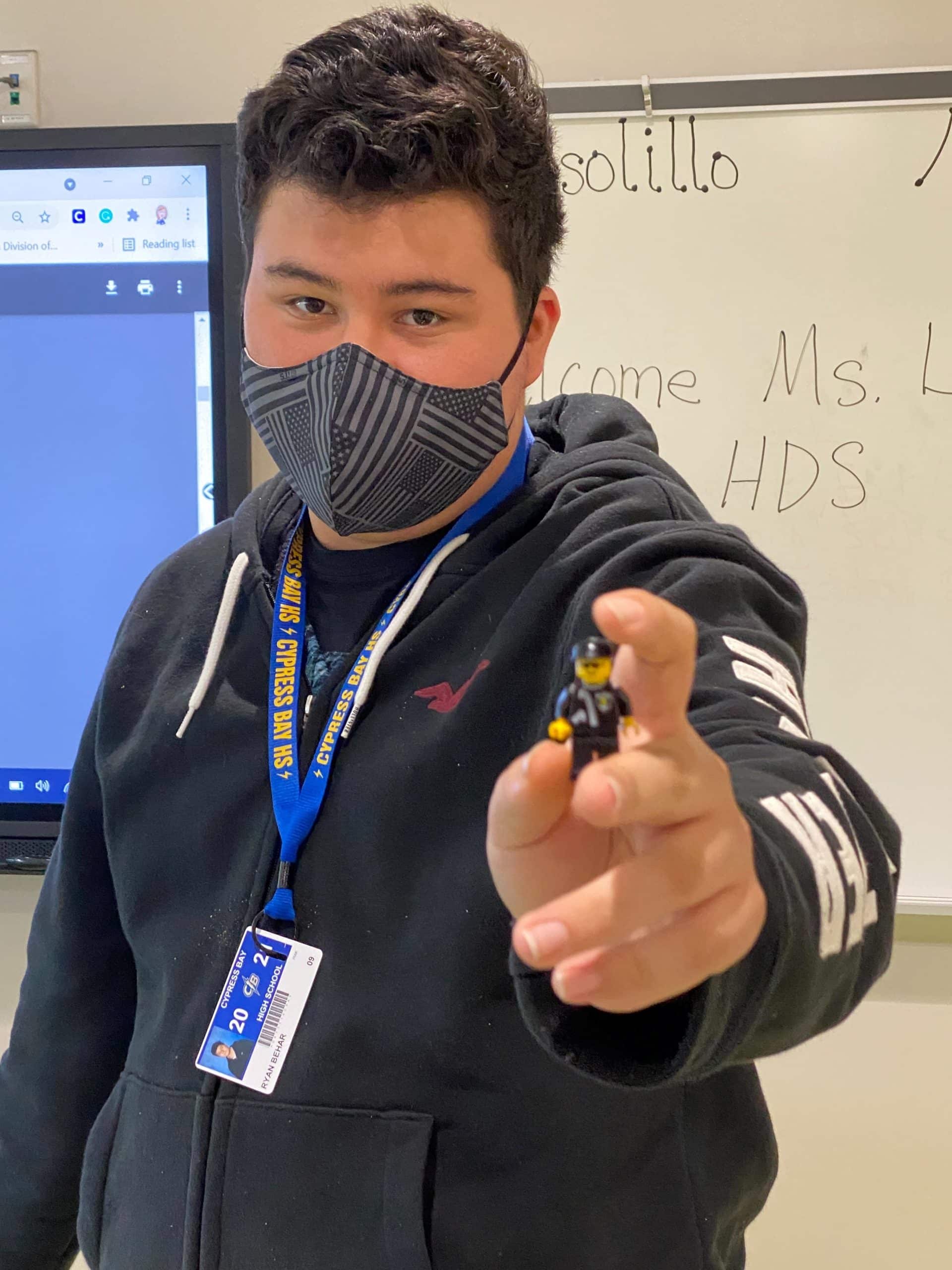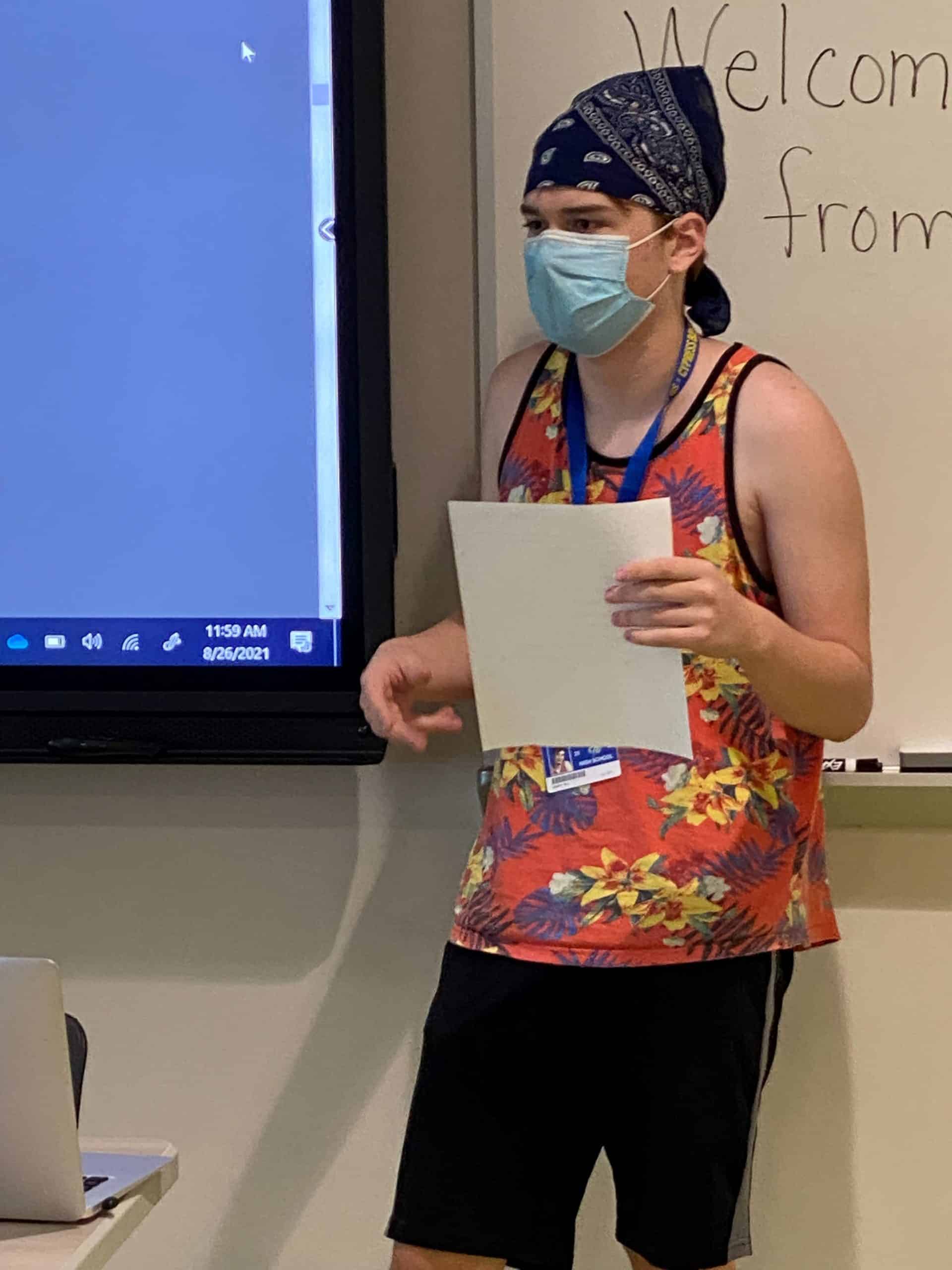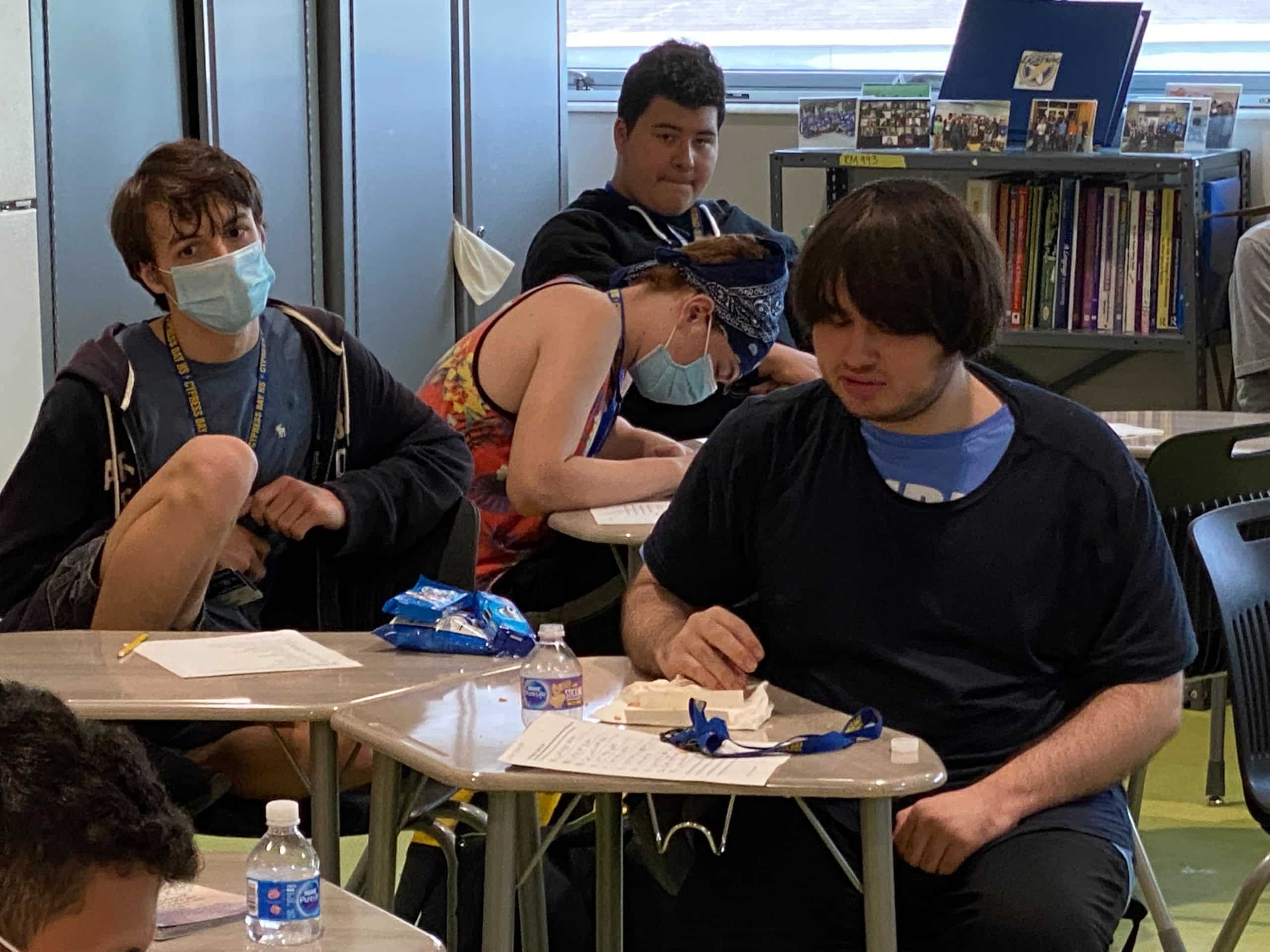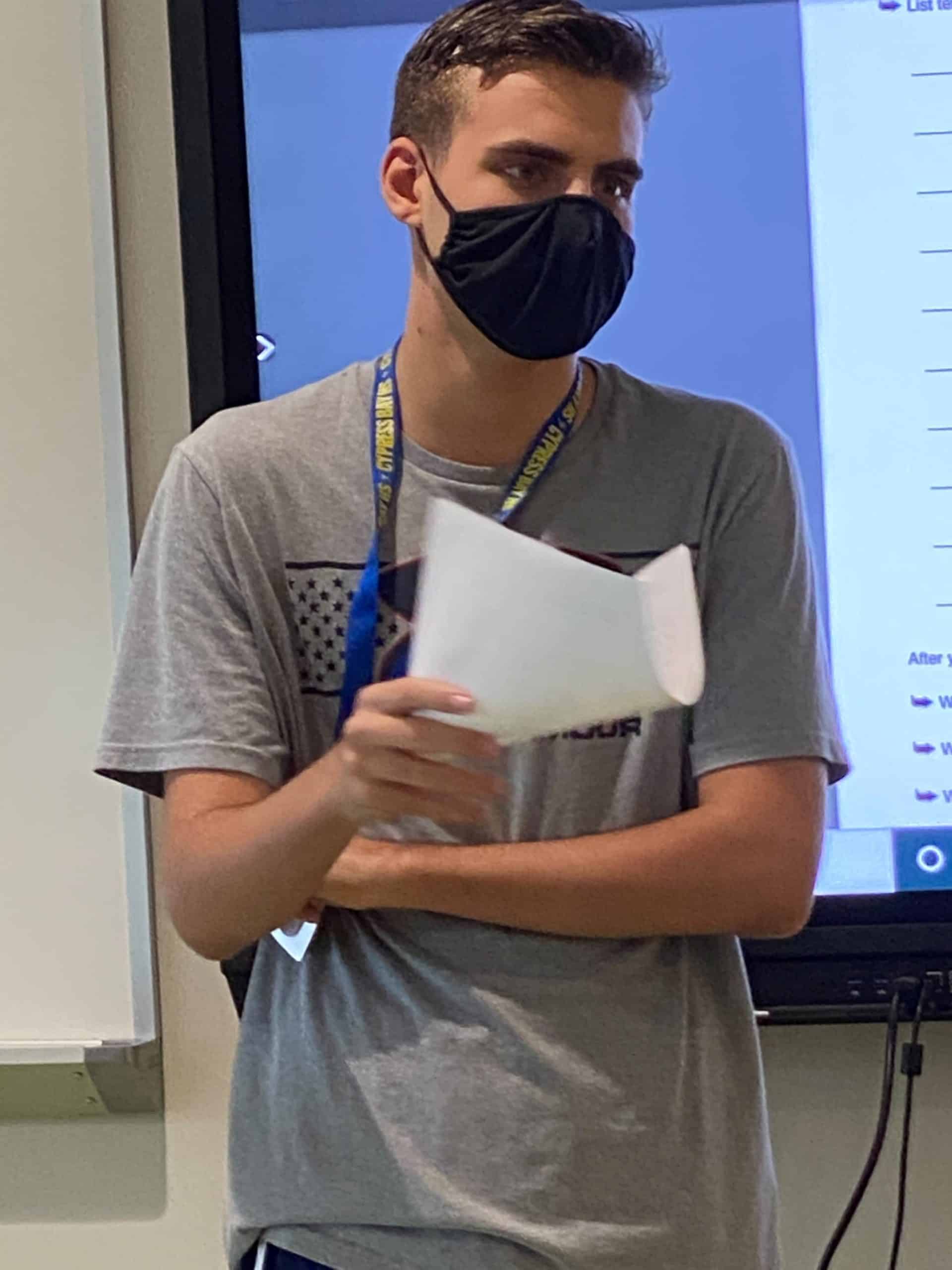Anthony’s Coal Fire Pizza
Pepperoni, mushrooms, and cheese! The B.R.I.D.G.E.S. students enjoyed their first outdoor eating Community Based Instruction (CBI) at Anthony’s Coal Fire Pizza!
Prior to the CBI, facilitators Donna Mansolillo and Kathy Gorman-Gard discussed with students about calculating tip for the server based upon the quality of service that was provided at a restaurant. The students and facilitators shared different experiences they had at restaurants and the quality of service they received. After the discussion, each student had a chance to practice their tip calculations using the Promethean Board calculator. Facilitators shared easy methods of how to figure out tips, without the use of a calculator.
Later that week, when the students went to Anthony’s Coal Fire Pizza, students were able to order a meal and a drink. Some of the students ordered subs, but the overall winner of meal choices was pizza. Students enjoyed socializing with one another, talking about what they did over the weekend and plans for homecoming. After everyone was done eating, Ms. Mansolillo asked the students how they felt the service had been for their large group. Everyone agreed the server did a great job and deserved the 20% tip.
The students are all now ready to give the appropriate amount of tip as they continue going out on their CBI’s over the school year. This CBI allowed the students to practice using their Resources, Independence, Development, Growth, Empowerment and Social Skills.
Substitute vs. Supported Decision Making with FND
Substitute Decision Making to Supported Decision Making was the topic of discussion with Family Network on Disabilities: Ally Walford and the B.R.I.D.G.E.S. students! The discussion began about the difference between Substitute Decision-Making vs. Supported Decision Making. The conversation starter, ”Who makes the decisions about health, living arrangements, and finances for the students?” got the presentation underway with students sharing who made most of the decisions for them.
As Ally continued with the presentation, she began to discuss how important it is to transition from Substitute to Supported Decision Making which gives individuals with disabilities the independence to make decisions about their own lives. Supported Decision Making puts the individual in the driver seat with support from a trusted person in their life. This enables the individual to lead a better quality of life by being the person that leads the decision making process whether it is about finances, medical, employment, school or personal care.
To begin this process, students were encouraged to attend Individual Education Planning (IEP) meetings as well as participate in discussions at their doctor’s visits. These examples were some ways to learn to begin to take the driver seat while making individual decisions.
We are very thankful to Ally Walford, for taking the time to spend with our B.R.I.D.G.E.S. students and discuss very important life skills. These skills of Supported Decision Making will continue to help the students work on Resources, Independence, Development, Growth and Empowerment.
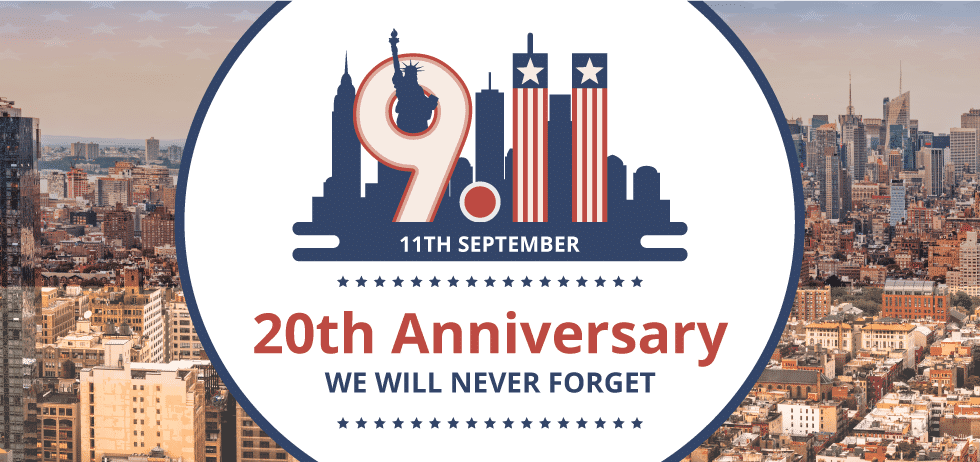
Patriot Day 2021
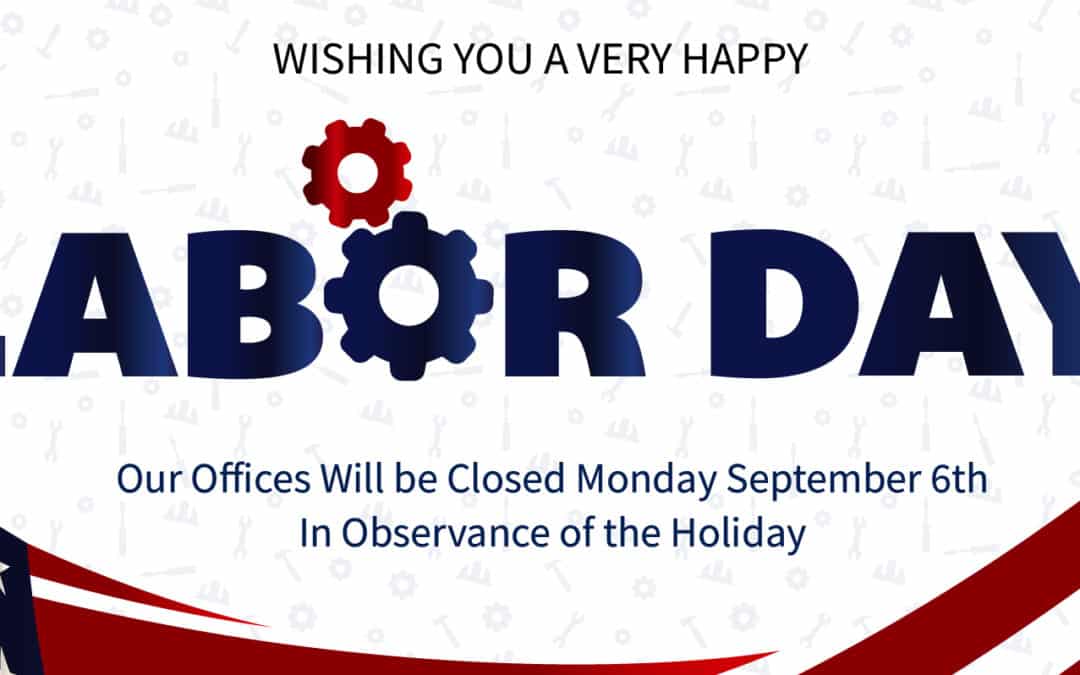
Labor Day 2021
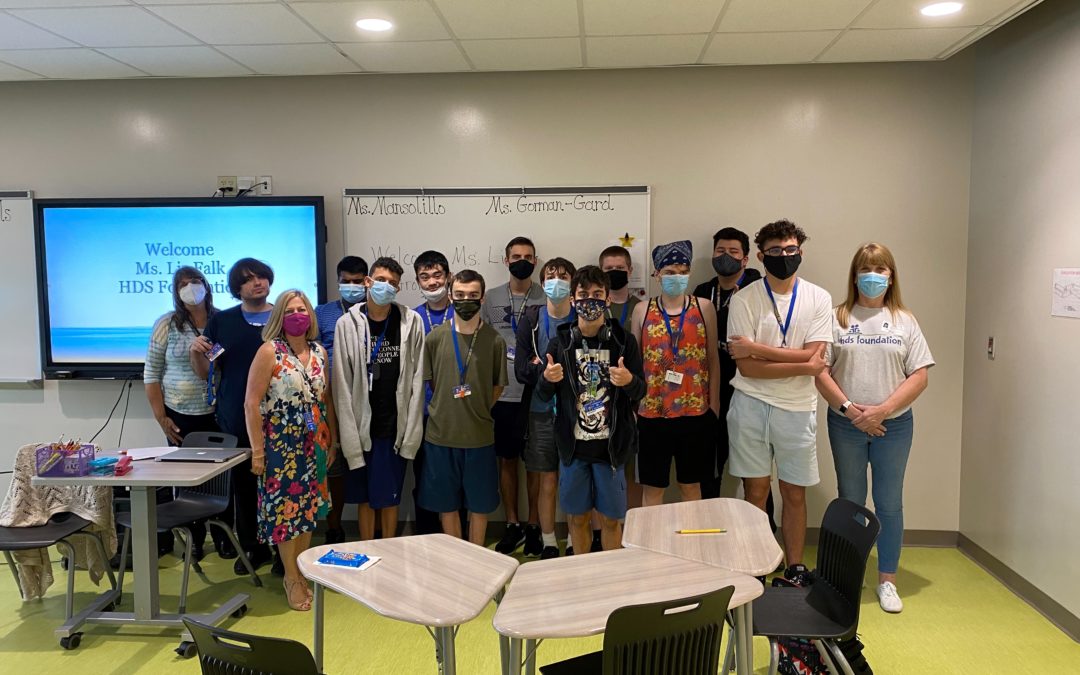
Welcome Back to School B.R.I.D.G.E.S. Class!
We are happy to welcome back the students in the B.R.I.D.G.E.S. class for the 21-22 school year! After a year and a half of virtual learning, we are ready to get back out in the community and experience in person Community Based Instructions (CBI).
Our HDS Foundation Program Manager, Liz Falk, was super excited to see our B.R.I.D.G.E.S. students and didn’t miss the opportunity to meet the class in person. With most of the class being new students, Liz introduced herself, the mission of the HDS Foundation, and what our role would be in helping them have a successful school year. Students were intrigued and asked many questions about our foundation, but most importantly they wanted to know what some of the activities they would be participating in this school year.
In order to get to know the students a little better, each student shared what they enjoyed doing outside of school. Some of their answers included: collecting Marvel comics, telling jokes, playing video games, beta testing, visiting garage sales, and going on vacation. This was a great way to learn the students interests, while also giving them an opportunity to practice public speaking in front of their peers.
The HDS Foundation is looking forward to a great year with the B.R.I.D.G.E.S. students and facilitators. Stay tuned to see what the students first CBI of the year will be!
No Results Found
The page you requested could not be found. Try refining your search, or use the navigation above to locate the post.

